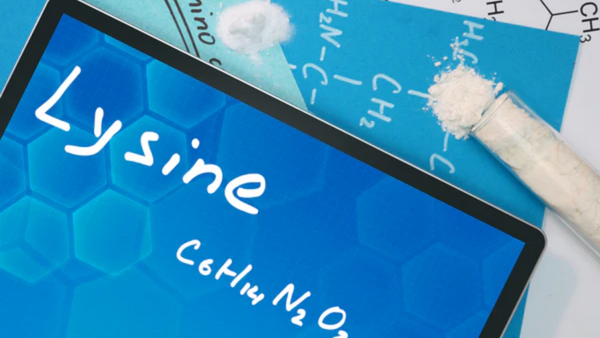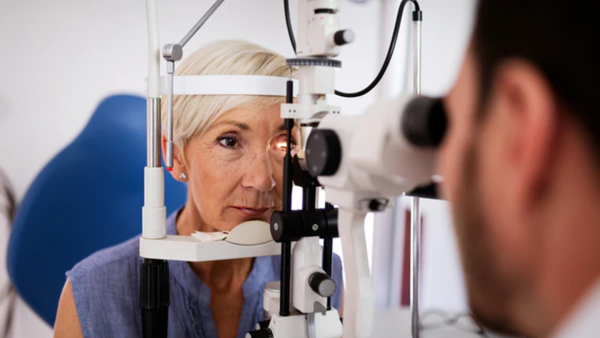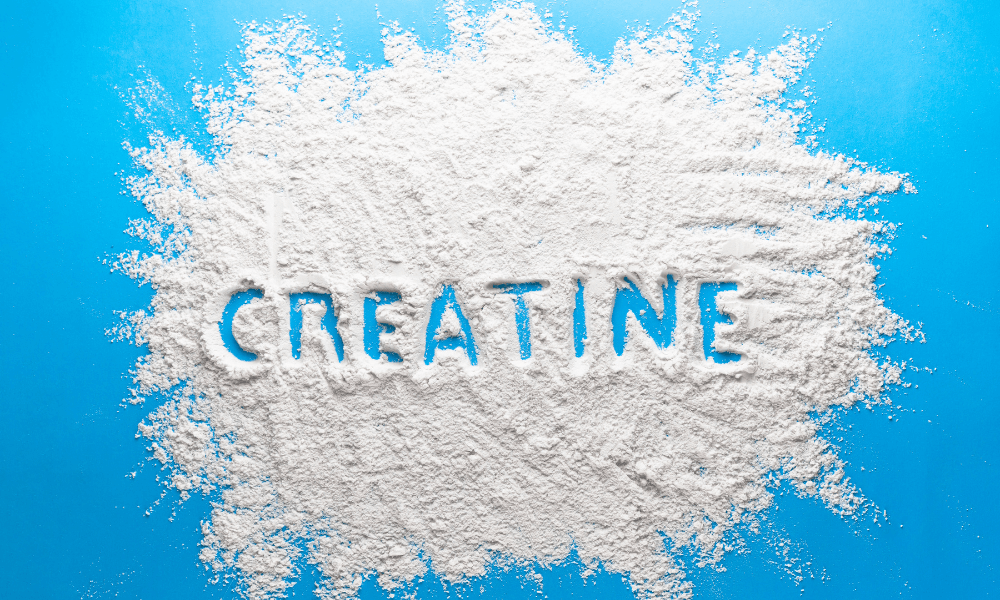Latest posts
Magazine

Burnout syndrome: Can micronutrients support treatment?
Burnout syndrome describes a state of emotional, mental and physical exhaustion. Burnout means something like burned out.
Burnout syndrome occurs as a result of a permanently high workload over a long period of time. Too much stress and high pressure to perform and meet deadlines also contribute to the development of burnout syndrome. It is often accompanied by anxiety, depression and sleep disorders .
People with burnout syndrome no longer feel able to cope with daily challenges and their work performance drops significantly. In severe cases, those affected are no longer able to work.
Relaxation techniques such as yoga, meditation and autogenic training play an important role in the treatment of burnout syndrome. It is also crucial to identify stress factors in everyday life and, if possible, eliminate or reduce them.
Burnout syndrome is usually only treated with medication if other symptoms such as anxiety and depression occur.
Micronutrients can help with burnout syndrome. High levels of stress can increase the need for certain nutrients. Many nutrients are also involved in energy production. In addition, nerve cells, which are particularly stressed during periods of high stress, require a number of essential nutrients.
IT'S WORTH READING!
AT THE END OF THE ARTICLE WE HAVE PROVIDED YOU A VOUCHER CODE.
B vitamins
B vitamins are also called nerve vitamins because they are essential for nerve function. They also have important functions in energy metabolism.
Vitamin B6 is involved in the production of many neurotransmitters that are important for mental health and stress management. These include the "happy hormones" dopamine and serotonin, as well as the "calming" neurotransmitter GABA and the stress hormone noradrenaline. [1]
Some studies suggest that taking B vitamins can have a positive effect on stress and mental health problems. [2]
Omega-3 fatty acids
There seems to be a connection between a lack of omega-3 fatty acids and psychological problems such as depression and mood swings. There is also evidence from studies that omega-3 fatty acids could help with depression. [3] [4]
Omega-3 fatty acids are an important component of cell membranes and therefore also of nerve cells. Omega-3 fatty acids also have an anti-inflammatory effect and can counteract chronic inflammation, which is suspected of being involved in the development of psychological problems.
Tryptophan
Tryptophan serves as a building block for the happiness hormone serotonin. This neurotransmitter is important for inner satisfaction and balance. Depression is often caused by an imbalance in the serotonin balance. Serotonin reuptake inhibitors (SSRIs) are therefore used to treat depression, which ensure that serotonin has a longer effect.
Studies suggest that serotonin acts similarly to SSRIs and can have a positive effect on mood. [5]
Taurine
The amino acid taurine is important for nerve cells and has an important protective function for nerve cells as it has anti-inflammatory and antioxidant properties. Taurine also has an inhibitory and calming effect on the nervous system. [6]
magnesium
Magnesium is a mineral that is involved in an incredible number of processes in the cell. These processes can also influence mood and play an important role in the stress response. Magnesium can also inhibit the release of the stress hormones adrenaline and noradrenaline. Stress also increases the need for magnesium.
Some studies show that taking magnesium may help relieve anxiety and depression. [7]
Vitamin D
Strictly speaking, vitamin D is not a vitamin, but a hormone. The body can produce it itself with the help of sunlight.
There is a strong connection between a lack of vitamin D and depression. For this reason, depressive moods are particularly common in winter.
Taking vitamin D for mental health problems has produced mixed results so far. But some studies indicate that taking vitamin D can alleviate depressive moods. [8]
Antioxidants: Vitamin C, Vitamin E, Zinc, Selenium
Antioxidants protect nerve cells from free radicals.
Studies indicate that vitamin C has an antidepressant effect.
Vitamin E appears to specifically protect brain regions that play a role in the development of depression from oxidative stress.
Zinc can promote the survival of nerve cells. Studies have shown that zinc could help with mental health problems. [9]
There is evidence that selenium can relieve anxiety and fatigue. [10]
L-carnitine and coenzyme Q10
L-carnitine and coenzyme Q10 are needed to generate energy in the mitochondria, the power plants of our cells. Coenzyme Q10 is part of the electron transport chain that is used to generate energy in the mitochondria. L-carnitine is important for the transport of fatty acids into the mitochondria, from which the cell then generates energy.
In cases of burnout syndrome and chronic stress, a good energy supply is particularly important. [11]
Conclusion: A good supply of micronutrients plays an important role in burnout syndrome
A deficiency in certain vitamins, minerals, amino acids and essential fatty acids is associated with psychological problems and burnout. These nutrients are important for energy production and for the function of nerve cells. The body also needs many micronutrients for the stress response.
WE HAVE YOU 10 % VOUCHER FOR OUR
Vitamin C , Vitamin B Complex , Vitamin B Complex Forte , Vitamin B12 , Vitamin D liquid , Vitamin D capsules , Selenium drops, Selenium tablets , L-tryptophan , Taurine , Omega-3 , Zinc , L-carnitine and Coenzyme Q10
PROVIDED AND HOPE TO BRING YOU JOY WITH IT.
SIMPLY COPY THE FOLLOWING COUPON CODE
AND ENTER IT AT CHECKOUT:
ENERGY+V10
To the products
[1] https://pubmed.ncbi.nlm.nih.gov/29685187/
[2] https://pubmed.ncbi.nlm.nih.gov/20454891/
[3] https://www.ncbi.nlm.nih.gov/pmc/articles/PMC5611753/
[4] https://pubmed.ncbi.nlm.nih.gov/25830700/
[5] https://www.ncbi.nlm.nih.gov/pmc/articles/PMC4728667/
[6] https://pubmed.ncbi.nlm.nih.gov/27938518/
[7] https://www.ncbi.nlm.nih.gov/pmc/articles/PMC5452159/
[8] https://pubmed.ncbi.nlm.nih.gov/26585952/
[9] https://pubmed.ncbi.nlm.nih.gov/29232566/
[10] https://pubmed.ncbi.nlm.nih.gov/1873372/
[11] https://pubmed.ncbi.nlm.nih.gov/23313551/

Lysine: Functions of the essential protein building block
Lysine is one of the essential amino acids that we must consume through food. It serves as a protein building block from which the body can produce protein. But lysine has other functions too. For example, it has an antiviral effect and is important for the immune system. More on this below.
IT'S WORTH READING!
AT THE END OF THE ARTICLE WE HAVE PROVIDED YOU A VOUCHER CODE.
Foods with lysine
Lysine is a component of protein and is therefore found in protein-rich foods. Meat, fish and eggs contain particularly high levels of lysine. But legumes such as soybeans are also a good source of lysine.
The following foods are good sources of lysine: [1]
Groceries
Lysine content in mg/100 g
Parmesan
3844
Chicken breast
3257
beef
3053
Salmon
2513
Soybeans
2344
Peanuts
Peanuts 926 [2]
Eggs
914 [3]
Lysine requirement
The daily lysine requirement has not been well researched. Scientists estimate that it is about 30 mg per kg of body weight. For a body weight of 80 kg, that would be 2400 mg. However, other scientists estimate the requirement to be slightly higher or lower.
Functions of lysine in the body
Building block of collagen
Lysine is a proteinogenic amino acid and a building block for the body's own proteins. It is therefore also a component of the most common protein in the body: collagen . Collagen is a connective tissue protein and is found in skin, bones, tendons, ligaments and cartilage.
Synthesis of L-carnitine
L-carnitine is an amino acid that does not serve as a protein building block. L-carnitine is needed to transport fatty acids to the power plants of our cells, the mitochondria. With the help of L-carnitine, the body can convert fat into available energy.
L-carnitine is found in food, mainly in meat. The body can also produce L-carnitine itself, from lysine and methionine. [4] It also requires B vitamins (vitamin B3 and vitamin 6), vitamin C and iron as cofactors.
Antiviral effect
Lysine has an antiviral effect, which has been well researched, especially with regard to herpes viruses. [5] Lysine is also important for the immune system.
Calcium absorption in the intestine
Lysine appears to be important for the absorption of calcium in the intestine. It is also thought that lysine can reduce the excretion of calcium in the urine. [6] Thus, it is probably indirectly important for bone health.
Symptoms of lysine deficiency
Typical symptoms of lysine deficiency include:
Increased susceptibility to infection
Disturbances in wound healing
Weight loss
Tiredness and exhaustion
Anemia
Mild irritability
However, these symptoms are non-specific. This means that they do not clearly indicate a lysine deficiency and can have many other causes.
The supply of lysine can also be measured in the blood. The normal value for lysine in blood serum is between 82 and 239 µmol/l.
Cover lysine needs
Lysine requirements can usually be met through diet. However, malnutrition or a low-protein diet can result in lysine and other essential amino acids being deficient. Taking essential amino acids can help meet the need for essential amino acids such as lysine.
Conclusion: Lysine has many functions in the body
Lysine is an essential nutrient that should not be neglected. The amino acid serves as a protein building block, but also has other functions. If you have a low-protein diet, it can be difficult to meet your lysine requirements.
WE HAVE YOU 10 % VOUCHER FOR OUR
Amino-8
PROVIDED AND HOPE TO BRING YOU JOY WITH IT.
SIMPLY COPY THE FOLLOWING COUPON CODE
AND ENTER IT AT CHECKOUT:
AMINO+V10
To the product
[1] https://nutritiondata.self.com/foods-000083000000000000000-w.html
[2] https://nutritiondata.self.com/facts/legumes-and-legume-products/4355/2
[3] https://nutritiondata.self.com/facts/dairy-and-egg-products/111/2
[4] https://pubmed.ncbi.nlm.nih.gov/18477325/
[5] https://pubmed.ncbi.nlm.nih.gov/30881246/
[6] https://pubmed.ncbi.nlm.nih.gov/1486246/

Can micronutrients relieve pain?
Many people suffer from pain on a regular basis. Pain can be a major burden in everyday life and severely limits the quality of life.
There are many different types and causes of pain. Pain usually occurs when tissue is damaged and serves as a warning signal. Once the trigger is removed and the injury heals, the pain usually subsides. But there is also chronic pain that lasts for a long time and the cause of which is often not easy to identify.
Pain is traditionally treated with painkillers such as non-steroidal anti-inflammatory drugs (NSAIDs), paracetamol and opioids.
When treating chronic pain, different painkillers are often combined. This makes the pain easier to control. However, this also results in significantly more side effects.
Micronutrients can complement pain therapy with medication. Many nutrients have an antispasmodic and anti-inflammatory effect or can influence the perception of pain.
IT'S WORTH READING!
AT THE END OF THE ARTICLE WE HAVE PROVIDED YOU A VOUCHER CODE.
B vitamins
B vitamins are also called nerve vitamins. For good reason. They are essential for the function of nerves and promote their regeneration. A deficiency in certain B vitamins can cause neuropathy, which leads to nerve pain.
Vitamin B1 has important functions in carbohydrate metabolism, which is important for energy production. Vitamin B1 can also suppress the transmission of impulses in nerve fibers, has an analgesic effect and increases pain tolerance. Vitamin B1 can be particularly helpful for chronic headaches and bone pain and neuralgia (nerve pain). [1]
Vitamin B3 has important functions in fat metabolism. In studies, high doses of vitamin B3 were able to alleviate neuralgia and neuropathy. [2]
Vitamin B6 is important for the synthesis of sphingosine (a component of the insulating myelin sheath). Vitamin B6 is also involved in the production of the happiness hormone serotonin, which can reduce the perception of pain.
Studies suggest that vitamin B6 may improve tolerance to drug withdrawal in chronic pain. [3]
Vitamin B12 is important for nerve regeneration. It is needed for the synthesis of myelin. Vitamin B12 can help with neuropathic pain and sensory disorders, especially when these are due to a vitamin B12 deficiency. [4]
Vitamin C
Vitamin C has an analgesic effect in high doses. It acts on the neurotransmitters dopamine and glutamine, which play an important role in pain perception. Studies have shown an analgesic effect on tooth, bone, back and tumor pain. [5]
Tryptophan
The amino acid tryptophan serves as a building block for the production of serotonin. It can raise the pain tolerance threshold in chronic pain. [6] However, caution is advised when taking morphine, as tryptophan can reduce its effect.
Omega-3
Omega-3 fatty acids have an anti-inflammatory effect. Since inflammatory reactions play an important role in many types of pain, they can counteract pain in this way.
In one study, omega-3 was able to reduce the frequency and intensity of headaches in subjects with treatment-resistant migraines. [7]
MSM
Methylsulfonylmethane (MSM, also called organic sulfur) has anti-inflammatory and analgesic effects. In one study, MSM was able to relieve osteoarthritis pain. [8]
magnesium
Magnesium can increase the seizure threshold and has a vasorelaxing effect. There is evidence of a connection between premenstrual migraine headaches and low magnesium levels.
selenium
Selenium is important for the body's antioxidant protection system. It appears to play a role in inflammatory joint diseases, as well as cancer, bone, back and tooth pain. [9]
Inadequate selenium intake is also associated with muscle pain. This is particularly relevant in Germany, as it is considered a selenium deficiency area and selenium deficiency is widespread.
Conclusion: Micronutrients can support pain therapy
Nerve cells require many nutrients to function optimally. B vitamins are particularly important for function and regeneration. Nutrients are also needed for the production of neurotransmitters that influence pain perception. Pain is often caused by inflammation and many nutrients have an anti-inflammatory effect.
WE HAVE YOU 10 % VOUCHER FOR OUR
Vitamin C , Vitamin B complex , Vitamin B12 ,Magnesium , Selenium drops , Selenium tablets , MSM , L-tryptophan and Omega-3
PROVIDED AND HOPE TO BRING YOU JOY WITH IT.
SIMPLY COPY THE FOLLOWING COUPON CODE
AND ENTER IT AT CHECKOUT:
SCHMERZ+V10
To the products
[1] https://pubmed.ncbi.nlm.nih.gov/3516138/
[2] https://www.revclinesp.es/es-tratamiento-da-nevralgia-do-trigemio-articulo-X0014256542134727
[3] https://pubmed.ncbi.nlm.nih.gov/2162644/
[4] https://pubmed.ncbi.nlm.nih.gov/13131878/
[5] https://pubmed.ncbi.nlm.nih.gov/582875/
[6] https://pubmed.ncbi.nlm.nih.gov/6764935/
[7] https://pubmed.ncbi.nlm.nih.gov/28056704/
[8] https://bmccomplementmedtherapies.biomedcentral.com/articles/10.1186/1472-6882-11-50
[9] https://www.cochranelibrary.com/central/doi/10.1002/central/CN-00350837/full

Cataracts: What micronutrients can do
Cataracts cause the lens of the eye to become cloudy, causing visual impairment. In the late stages, blindness can occur.
In cataracts, the protein structures in the eye change, causing them to become denser. The lens becomes cloudy and the visual process is impaired. Objects are no longer perceived as clearly.
Cataracts develop slowly, usually over decades. In the beginning, no problems are usually noticed, but over time, vision deteriorates more and more. It is often only diagnosed in people over 60.
In addition to age, certain medications (e.g. medications containing cortisone), chemotherapy, diabetes, smoking and frequent exposure to strong UV radiation can promote the development of cataracts.
Cataracts are considered incurable and can currently only be treated surgically. The clouded lens of the eye is replaced with an artificial lens.
Micronutrients can help with cataracts and may even prevent the disease.
IT'S WORTH READING!
AT THE END OF THE ARTICLE WE HAVE PROVIDED YOU A VOUCHER CODE.
Antioxidants
Oxidative stress is caused by free radicals and can damage the lens of the eye. Eyes are particularly susceptible to oxidative stress due to UV radiation. Antioxidants capture free radicals and thus help to protect the eyes from oxidative stress caused by UV light.
The antioxidants vitamin A, vitamin C and vitamin E have been shown to be helpful in the treatment of cataracts. [1] Carotenoids and other phytochemicals such as OPC and green tea extract can also help reduce oxidative stress in the eye. [2]
B vitamins
The protein structures in the eye require B vitamins. In addition, high homocysteine levels can damage the eye and promote cataracts. Homocysteine is a toxic metabolic product that is broken down by B vitamins . The B vitamins vitamin B6, folic acid (vitamin B9) and vitamin B12 are particularly important here. Studies indicate that B vitamins can prevent cataracts. [3] [4]
Omega-3 fatty acids
Omega-3 fatty acids are a component of cell membranes and also play an important role in the cells of the eyes, especially the retina. The omega-3 fatty acid DHA is important for the visual process and for light-dark vision.
In addition, omega-3 fatty acids can counteract dry eyes because they can positively influence the composition of the tear film. [5] [6] Patients often suffer from dry eye syndrome after cataract surgery.
Conclusion: Micronutrients can support cataracts
Oxidative stress caused by UV light appears to play an important role in the development of cataracts. Antioxidants such as vitamin A, vitamin C and vitamin E as well as secondary plant substances can protect the eye from oxidative stress. In addition, high homocysteine levels caused by a lack of B vitamins can damage the eye. Omega-3 fatty acids are essential for the eye and can counteract dry eye syndrome after surgery.
WE HAVE PROVIDED YOU WITH A 10 % VOUCHER FOR OUR Vitamin C , Astaxanthin , OPC Premium , Liposomal OPC , Vitamin B complex Forte and Omega-3 AND HOPE TO MAKE YOU JOY WITH IT.
SIMPLY COPY THE COUPON CODE STAR+V10 AND ENTER IT AT CHECKOUT.
To the products
[1] https://link.springer.com/article/10.1007/s00347-003-0788-0
[2] https://pubmed.ncbi.nlm.nih.gov/28628342/
[3] https://pubmed.ncbi.nlm.nih.gov/26786311/
[4] https://www.ncbi.nlm.nih.gov/pubmed/28820082
[5] https://www.ncbi.nlm.nih.gov/books/NBK11888/
[6] https://www.ncbi.nlm.nih.gov/pmc/articles/PMC5362390/

Micronutrients in age-related macular degeneration
In macular degeneration, waste products build up in the retina of the eye. Vision deteriorates and, in the worst case, macular degeneration can lead to blindness.
The causes of macular degeneration are not well understood. What is certain is that advancing age greatly increases the risk of macular degeneration. Light skin and blue or green eyes also seem to increase the risk of macular degeneration. Diet also plays a role in macular degeneration. Smoking, diabetes and high blood pressure also increase the risk of macular degeneration.
Micronutrients can counteract oxidative stress in the eye, which promotes the development and progression of macular degeneration.
IT'S WORTH READING!
AT THE END OF THE ARTICLE WE HAVE PROVIDED YOU A VOUCHER CODE.
Vitamin C
Vitamin C is an important antioxidant that can protect the eyes from oxidative stress. In macular degeneration, it is particularly effective in combination with vitamin E, carotenoids and zinc. [1]
Carotenoids
When UV light enters the eye, free radicals are created that cause oxidative stress. Oxidative stress appears to play an important role in the development of macular degeneration.
Carotenoids such as beta-carotene, lutein and zeaxanthin scavenge free radicals and thus protect the eyes from oxidative stress. Lutein and zeaxanthin can also scavenge UV light and thus offer further protection.
People who have a lot of lutein and zeaxanthin in their diet have a lower risk of macular degeneration. [2]
Zinc and copper
Zinc can also scavenge free radicals and thus reduce oxidative stress in the eye. It also has anti-inflammatory properties. In this way, zinc can probably counteract chronic inflammation in the eye that promotes macular degeneration.
People with macular degeneration are often not well supplied with zinc. [3] Conversely, taking zinc can slow the progression of macular degeneration. [4]
Coenzyme Q10
The body also has its own antioxidants that it can produce itself. These include coenzyme Q10 . Coenzyme Q10 is also important for energy metabolism and can help regenerate other antioxidants such as vitamin C and vitamin E.
However, the body’s own production of coenzyme Q10 decreases sharply with age.
In one study, coenzyme Q10 in combination with L-carnitine and omega-3 fatty acids was able to improve vision in macular degeneration. [5]
L-Carnitine
The body can also produce L-carnitine from methionine and lysine. It also has antioxidant properties and is important for energy production in the mitochondria, the power plants of the cell.
Omega-3 fatty acids
Omega-3 fatty acids are a component of cell membranes and are also found in the cells of the retina. Since the retinal cells renew themselves frequently, they require a particularly high amount of omega-3.
However, studies have provided conflicting results on whether omega-3 fatty acids can actually help with macular degeneration. [6] Since omega-3 fatty acids are essential and most people do not consume enough of them through their diet, it is always a good idea to ensure a good supply of omega-3 fatty acids.
Conclusion: Nutrients protect the eyes from oxidative stress
Oxidative stress caused by free radicals plays an important role in the development of macular degeneration. Since the eye is constantly exposed to UV light, it is at high risk for oxidative stress. Antioxidants such as beta-carotenoids, zinc, vitamin E, vitamin C, as well as the body's own antioxidants protect the eye from oxidative stress and can thus counteract macular degeneration.
WE HAVE PROVIDED YOU WITH A 10 % VOUCHER FOR OUR Vitamin C , Astaxanthin , Zinc & Copper , Coenzyme Q10 , L-Carnitine and Omega-3 AND HOPE TO MAKE YOU JOY WITH IT.
SIMPLY COPY THE COUPON CODE MAKULA+V10 AND ENTER IT AT CHECKOUT.
To the products
[1] https://www.ncbi.nlm.nih.gov/pmc/articles/PMC1462955/
[2] https://www.ncbi.nlm.nih.gov/pmc/articles/PMC4636082/
[3] https://pubmed.ncbi.nlm.nih.gov/18848316/
[4] https://pubmed.ncbi.nlm.nih.gov/25393287/
[5] https://pubmed.ncbi.nlm.nih.gov/15947501/
[6] https://www.karger.com/Article/FullText/441359

Glaucoma: What micronutrients can do
Glaucoma is a disease that often occurs in old age. In glaucoma, the pressure inside the eye is too high, which damages the optic nerve. As a result, the field of vision is restricted and in the late stages it can even lead to blindness.
The inside of the eye is filled with aqueous humor. In glaucoma, the aqueous humor cannot drain properly, which increases the pressure and, as a result, damages the optic nerve.
Eye drops are used to treat glaucoma. Their active ingredients inhibit the production of aqueous humor or ensure that it can drain more easily.
Micronutrients can support the treatment of glaucoma.
IT'S WORTH READING!
AT THE END OF THE ARTICLE WE HAVE PROVIDED YOU A VOUCHER CODE.
Magnesium
Magnesium is important for blood pressure regulation and also promotes blood circulation. Magnesium can therefore support the drainage of aqueous humor, which can reduce intraocular pressure. [1] , [2]
Omega-3 fatty acids
Omega-3 fatty acids are part of nerve cell membranes and therefore also of the optic nerve. Omega-3 fatty acids can also promote blood circulation and reduce oxidative stress. [3]
B vitamins
B vitamins are also known as nerve vitamins because they are essential for nerve function. In addition, vitamin B6, folic acid (vitamin B9) and vitamin B12 are needed for the detoxification of homocysteine. If there is a deficiency, homocysteine increases, which can damage nerve cells and also the optic nerve. [4] [5]
Patients with glaucoma often have elevated homocysteine levels.
Vitamin A
Vitamin A is essential for the process of vision. It ensures that the eye can perceive light stimuli. Night blindness is an early symptom of vitamin A deficiency.
A good supply of vitamin A can reduce the risk of developing cataracts. [6] Since vitamin A is an antioxidant, it can also protect the optic nerve from damage caused by free radicals.
Arginine
The amino acid arginine is needed for the formation of nitric oxide (NO). NO is important for vascular health because it causes the vessels to expand. In glaucoma, arginine can therefore improve blood flow in the eye, allowing the aqueous humor to drain better.
Initial studies suggest that arginine can actually reduce intraocular pressure in patients with glaucoma. [7]
Antioxidants
Patients with glaucoma often have increased oxidative stress. [8] , [9] In addition to vitamin A, vitamin E, vitamin C , zinc and selenium are important antioxidants in the body. They can help protect the optic nerve from oxidative stress. [10]
Conclusion: Micronutrients can support the treatment of glaucoma
Micronutrients can positively influence the treatment of glaucoma in several ways. They can increase blood flow in the eye, which allows the aqueous humor to drain better. In addition, good blood flow is important for the supply of nutrients to the eye. Micronutrients can also help protect the optic nerve from further damage.
WE HAVE PROVIDED YOU WITH A 10 % VOUCHER FOR OUR Vitamin B complex forte ,Magnesium , Vitamin C and Omega-3 AND HOPE TO MAKE YOU PLEASURE WITH IT.
SIMPLY COPY THE COUPON CODE AUGE+V10 AND ENTER IT AT CHECKOUT.
To the products
[1] https://pubmed.ncbi.nlm.nih.gov/24233809/
[2] https://pubmed.ncbi.nlm.nih.gov/19882529/
[3] https://www.ncbi.nlm.nih.gov/pmc/articles/PMC5931260/
[4] https://pubmed.ncbi.nlm.nih.gov/24699833/
[5] https://pubmed.ncbi.nlm.nih.gov/22134713/
[6] https://www.sciencedirect.com/science/article/pii/S0181551222000419
[7] https://pubmed.ncbi.nlm.nih.gov/10980664/
[8] https://pubmed.ncbi.nlm.nih.gov/23651069/
[9] https://pubmed.ncbi.nlm.nih.gov/25987108/

Micronutrients for cardiac arrhythmias: These nutrients should not be missing
In a healthy person, the heart beats about 60-100 times per minute in a regular rhythm. In the case of a cardiac arrhythmia, the heartbeat is either too fast, too slow or irregular.
Cardiac arrhythmias can have various causes. However, they are often associated with heart diseases that lead to cardiac arrhythmias.
The most common form of cardiac arrhythmia is atrial fibrillation: In atrial fibrillation, the heart chambers no longer contract in the correct rhythm. As a result, the heart beats too fast but still pumps too little blood.
IT'S WORTH READING!
AT THE END OF THE ARTICLE WE HAVE PROVIDED YOU A VOUCHER CODE.
In the case of cardiac arrhythmia, the transmission of signals in the heart is disrupted. It often occurs together with other heart diseases, such as myocarditis, heart failure and high blood pressure.
Symptoms of cardiac arrhythmias include fatigue, lack of energy, rapid heartbeat, shortness of breath, irregular pulse, dizziness and nausea. However, they can also go unnoticed.
Cardiac arrhythmias are treated with beta-blockers, potassium channel blockers, calcium antagonists and sodium channel blockers. Anticoagulant agents are often also used.
Nutrients that are important for the heart and are needed for signal transmission in the heart can support treatment.
Coenzyme Q10
Coenzyme Q10 is important for energy production in the mitochondria, the power plants of our cells. Since the heart beats around the clock, it needs a lot of energy.
In addition, coenzyme Q10 is an antioxidant that protects against oxidative stress and the resulting inflammation. Inflammatory reactions can promote cardiac arrhythmias.
The body can produce coenzyme Q10 itself, but production decreases significantly with age.
Supplementation with coenzyme Q10 can reduce the risk of atrial fibrillation in patients with heart failure. [1]
Magnesium
Magnesium is essential for the heartbeat. It is needed for signal transmission that causes the heart muscle to contract. A magnesium deficiency leads to changes in the excitability of the heart muscle cells, which can lead to cardiac arrhythmias.
Heart disease is associated with a magnesium deficiency. Magnesium can prevent and alleviate cardiac arrhythmias. [2] [3]
L-Carnitine
L-carnitine is an amino acid-like compound that is important for energy production: it is needed to transport fatty acids into the mitochondria, where fat is converted into energy.
But L-carnitine doesn't just supply the heart with energy. It also reduces oxidative stress and thus protects the heart from free radicals that can damage the heart muscle.
Although L-carnitine has not been directly studied in cardiac arrhythmias, its cardioprotective effects are well known. [4] It may help with many heart conditions that increase the risk of cardiac arrhythmias. [5] Studies suggest that L-carnitine may reduce the rate of cardiac arrhythmias after a heart attack or bypass surgery.
Potassium
Similar to magnesium, potassium is also important for signal transmission in the heart. Cardiac arrhythmia is a well-known symptom of potassium deficiency. [6]
The effectiveness of potassium in treating cardiac arrhythmias has not been well studied. However, potassium can help with other cardiovascular problems. It can lower blood pressure and reduce the risk of stroke.
If you have cardiac arrhythmias, your potassium supply should be checked. Supplementation is only recommended if your potassium level is low, as an overdose can also cause cardiac arrhythmias.
Omega-3 fatty acids
Omega-3 fatty acids are good for the heart. Due to their anti-inflammatory effect, they protect the heart muscles from inflammation. They also have a blood-thinning effect, making it easier for the heart to pump blood through the body. It is also believed that omega fatty acids can stabilize heart muscle cells.
It has been well researched that omega-3 fatty acids can support heart health. [7] Although the data on cardiac arrhythmias are conflicting, a good supply of omega-3 fatty acids is generally recommended.
Conclusion: Nutrient deficiencies can promote cardiac arrhythmias
The heart needs many nutrients to function optimally. If individual nutrients are lacking, heart problems are encouraged. A lack of nutrients that are important for energy production and signal transmission in the heart can increase the risk of cardiac arrhythmia. Particularly critical nutrients are magnesium, potassium, coenzyme Q10 and L-carnitine.
WE HAVE PROVIDED YOU WITH A 10 % VOUCHER FOR OUR Coenzyme Q10 ,Magnesium , L-Carnitine , Potassium and Omega-3 AND HOPE TO MAKE YOU JOY WITH IT.
SIMPLY COPY THE COUPON CODE HERZ+V10 AND ENTER IT AT CHECKOUT.
To the products
[1] https://journals.viamedica.pl/cardiology_journal/article/view/CJ.a2019.0022/47605
[2] https://pubmed.ncbi.nlm.nih.gov/27634841/
[3] https://pubmed.ncbi.nlm.nih.gov/16870070/
[4] https://pubmed.ncbi.nlm.nih.gov/28982550/
[5] https://pubmed.ncbi.nlm.nih.gov/23597877/
[6] https://www.ncbi.nlm.nih.gov/pmc/articles/PMC4816263/
[7] https://www.ncbi.nlm.nih.gov/pmc/articles/PMC3399517/pdf/nihms385378.pdf

Tinnitus & sudden hearing loss: Can micronutrients help?
Tinnitus is the perception of sounds that do not exist. They are usually ringing, whistling or hissing sounds.
A distinction is made between acute and chronic tinnitus: acute tinnitus lasts up to three months, while tinnitus that lasts longer is called chronic. Tinnitus can severely impair quality of life, cause sleep disorders and even promote depression.
In the case of sudden hearing loss, the sound waves reach the inner ear, but they are not processed properly and therefore not perceived. Sudden hearing loss usually occurs on one side. In many cases, it is accompanied by tinnitus.
The causes of tinnitus and sudden hearing loss are not clearly understood. The symptoms usually disappear spontaneously, which makes it difficult to determine the cause.
The aim of micronutrient medicine is to support the function of the auditory nerves and to protect them from harmful influences.
IT'S WORTH READING:
WE HAVE CREATED A DISCOUNT CODE FOR YOU ON THE PRODUCTS OF THIS ARTICLE OFFERED IN THE SHOP. YOU CAN FIND IT AT THE END OF THE BLOG POST.
Antioxidants
Sudden hearing loss and tinnitus are caused by oxidative damage to the nerve cells in the ear. A good supply of antioxidants such as vitamin A, vitamin C , vitamin E and zinc is important to counteract this. [1]
A study from the USA has shown that people who consume plenty of antioxidant nutrients have a lower risk of hearing loss. [2]
Intervention studies also show that the administration of the antioxidants vitamin C and E can improve hearing. [3]
magnesium
Magnesium is important for signal transmission in the hearing process. It is known that a magnesium deficiency can cause hearing problems. [4]
There is also a connection between magnesium deficiency and tinnitus: people with tinnitus are less well supplied with magnesium than people without these complaints.
Placebo-controlled studies show that magnesium supplementation can help with hearing loss and reduce tinnitus symptoms. [5] [6]
B vitamins
Vitamin B12 is essential for nerve cells. A lack of vitamin B12 can cause irreparable nerve damage. Vitamin B12 is therefore also important for auditory nerves.
The B vitamins vitamin B6, folic acid (vitamin B9) and vitamin B12 are also needed to break down the metabolic product homocysteine. A deficiency in these vitamins leads to increased homocysteine levels, which can damage nerve cells. [7]
Coenzyme Q10
Coenzyme Q10 is important for energy production in the mitochondria, the power plants of our cells. Auditory nerves also need coenzyme Q10. Coenzyme Q10 is also an antioxidant that protects nerve cells from oxidative stress.
A study has shown that coenzyme Q10 can relieve tinnitus symptoms. Coenzyme Q10 can also have a positive effect on sudden hearing loss. [8]
Conclusion: A lack of essential nutrients damages the auditory nerves
Nerve cells and auditory nerves require many nutrients to function optimally. A lack of B vitamins, magnesium, coenzyme Q10 and antioxidants can impair the hearing process and promote sudden hearing loss and tinnitus.
As promised, you will receive a 10% voucher on the following products:
Vitamin B complex , Vitamin B complex Forte , Vitamin B12 , Vitamin C , Coenzyme Q10 ,Magnesium , Zinc
Simply copy the code TINNITUS10 and enter it at checkout.
To the products!
[1] https://pubmed.ncbi.nlm.nih.gov/25554004/
[2] https://pubmed.ncbi.nlm.nih.gov/24196403/
[3] https://pubmed.ncbi.nlm.nih.gov/17851951/
[4] https://pubmed.ncbi.nlm.nih.gov/15267180/
[5] https://pubmed.ncbi.nlm.nih.gov/22249877/
[6] https://www.ncbi.nlm.nih.gov/pubmed/15330150
[7] https://pubmed.ncbi.nlm.nih.gov/15267180/
[8] https://www.ncbi.nlm.nih.gov/pubmed/21199410

Nutrients against wrinkles?
Table of contents
Vitamin A
Coenzyme Q10
Vitamin E
OPC
Vitamin C
zinc
Collagen
MSM
Hyaluronic acid
Carotenoids
Conclusion: Nutrients can help reduce wrinkles as we age
The formation of wrinkles as we age is a natural process. An important reason for the formation of wrinkles is the decrease in collagen in the skin.
There are many factors that promote the formation of wrinkles. These include stress, UV light, smoking and alcohol consumption. Hormonal processes also play a role.
Micronutrients can help slow down this natural process. The skin needs lots of vitamins and minerals. A good supply can support skin health.
IT'S WORTH READING!
AT THE END OF THE ARTICLE WE HAVE PROVIDED YOU A VOUCHER CODE.
Vitamin A
Vitamin A has important functions in building the skin structure. It also promotes the skin's regeneration processes and can visibly improve the smoothness of the skin. Vitamin A also stimulates the formation of collagen - the most important protein in connective tissue, as it gives the skin elasticity. [1]
Coenzyme Q10
Coenzyme Q10 is important for energy production in cells. It is necessary for the function of many enzymes in the mitochondria, the power plants of our cells. Coenzyme Q10 is also a radical scavenger that captures free radicals.
Studies show that coenzyme Q10 can increase skin elasticity and make it appear smoother. [2]
Vitamin E
Vitamin E has many functions in the skin: it can improve moisture, increase skin thickness and increase protection against UV light. Vitamin E is also an important antioxidant and has anti-inflammatory effects. [3]
OPC
Oligomeric proanthocyanidins (OPC) are flavonoids and are very rich in antioxidants that counteract oxidative stress. OPC can protect the skin from sun damage and reduce sunburn. [4]
Vitamin C
Vitamin C can stimulate collagen production and thus indirectly increase the elasticity of the skin. It can also increase protection against UV rays. [5]
zinc
Zinc supports the function of enzymes that fight free radicals. [6]
Collagen
Collagen is the most common protein in the body and an important component of connective tissue. The body can produce collagen itself, but production decreases significantly with age. This is probably one reason why skin looks less youthful as we age.
Collagen has been shown to improve skin moisture and elasticity. [7] [8]
MSM
Methylsulfonylmethane (MSM) is an important source of sulfur. Sulfur is needed for connective tissue – it is an important component of collagen and keratin. MSM can improve the appearance and firmness of the skin. [9]
Hyaluronic acid
Hyaluronic acid contains glucosamine, which is an important component of connective tissue. Taking glucosamine can increase the elasticity of the skin. [10] [11]
Carotenoids
Carotenoids are secondary plant substances that can capture free radicals. They are deposited in the skin and can increase protection against UV radiation. [12] [13]
Conclusion: Nutrients can help reduce wrinkles as we age
Wrinkles are part of the aging process and cannot be completely prevented. However, micronutrients can support processes that are important for the elasticity, moisture and youthful appearance of the skin.
WE HAVE PROVIDED YOU A 10 % VOUCHER FOR OUR Coenzyme Q10 , OPC , Vitamin C , Zinc , Collagen , MSM , Hyaluron and Astaxanthin AND HOPE TO MAKE YOU JOY WITH IT.
SIMPLY COPY THE COUPON CODE ANTIAGING+V10 AND ENTER IT AT CHECKOUT.
To the products
[1] https://www.ncbi.nlm.nih.gov/pmc/articles/PMC2699641/
[2] https://pubmed.ncbi.nlm.nih.gov/19096121/
[3] https://pubmed.ncbi.nlm.nih.gov/27559512/
[4] http://oxiprovin.com/wp-content/uploads/2016/08/GSE-anti-inflammatory-skin-UV-damage-and-hydration-study.pdf
[5] https://pubmed.ncbi.nlm.nih.gov/28805671/
[6] https://pubmed.ncbi.nlm.nih.gov/22453589/
[7] https://www.ncbi.nlm.nih.gov/pmc/articles/PMC3426261/
[8] https://www.jmnn.org/article.asp?issn=2278-1870;year=2015;volume=4;issue=1;spage=47;epage=53;aulast=Borumand
[9] https://www.naturalmedicinejournal.com/journal/effects-oral-supplementation-methylsulfonylmethane-skin-health-and-wrinkle-reduction
[10] https://pubmed.ncbi.nlm.nih.gov/17716251/
[11] https://www.ncbi.nlm.nih.gov/pmc/articles/PMC5522662/
[12] https://www.jmnn.org/article.asp?issn=2278-1870;year=2015;volume=4;issue=1;spage=47;epage=53;aulast=Borumand
[13] https://pubmed.ncbi.nlm.nih.gov/28805671/


















